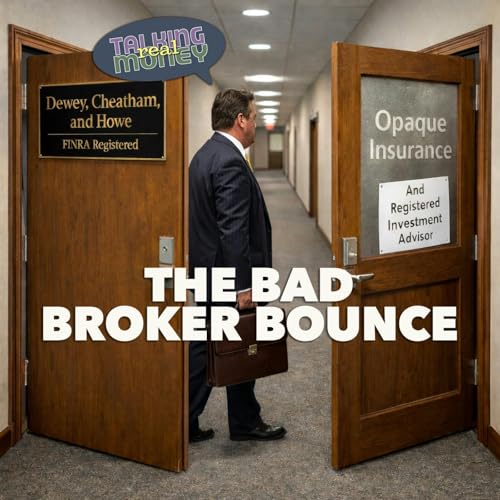Don and Tom kick off the show with weekend banter and nostalgia about checkbooks before diving into why buying and selling a home remains one of life’s biggest—and most misunderstood—financial decisions. Using a Wall Street Journal quiz, they explore smart pricing, commission negotiations, low-cost home improvements, inspections, seasonal pricing patterns, and even haunted-house disclosures. Along the way, callers ask about life insurance planning, tax-managed accounts, umbrella insurance, and retirement income strategy. The episode emphasizes realistic expectations, low-cost investing, diversification, and avoiding unnecessary fees, while reminding listeners that simple, disciplined decisions usually beat flashy financial “solutions.” 0:04 Weekend open, call-in invite, “no annuity” guarantee, check-writing nostalgia 1:24 Don discovers last checks were written in 2019–2021 2:45 Home buying/selling as life’s biggest transaction 3:20 Overpricing your house and “it’s worth what someone pays” 4:24 WSJ real estate quiz: pricing strategy in slow markets 6:14 Break, banter, and commission quiz setup 7:04 Real estate commissions are negotiable 8:10 Selling by owner and staging realities 9:14 Caller Dustin: debt-free at 27, life insurance, DIY vs advisors 12:41 Planning for life insurance proceeds and beneficiaries 14:06 Zillow estimates and home values 14:43 Caller Joey: SMAs and tax-loss strategies 17:31 Capital gains, housing exemptions, and SMA practicality 19:16 Caller Beth: umbrella insurance for homeowners 22:02 Caller Ron: retirement income, stable value funds, RMDs 25:06 Diversification beyond the S&P 500 26:50 Returning to WSJ real estate quiz 27:43 Best ROI upgrades: paint and curb appeal 28:23 Pre-listing inspections 29:44 When home prices peak (June) 31:09 Haunted houses and disclosure laws 33:43 Listener portfolio: AVGE, AVGV, bonds Learn more about your ad choices. Visit megaphone.fm/adchoices
続きを読む
一部表示
 2026/01/3021 分
2026/01/3021 分 2026/01/2932 分
2026/01/2932 分 2026/01/2839 分
2026/01/2839 分 2026/01/2745 分
2026/01/2745 分 2026/01/2630 分
2026/01/2630 分 2026/01/2329 分
2026/01/2329 分 2026/01/2245 分
2026/01/2245 分 2026/01/2145 分
2026/01/2145 分
